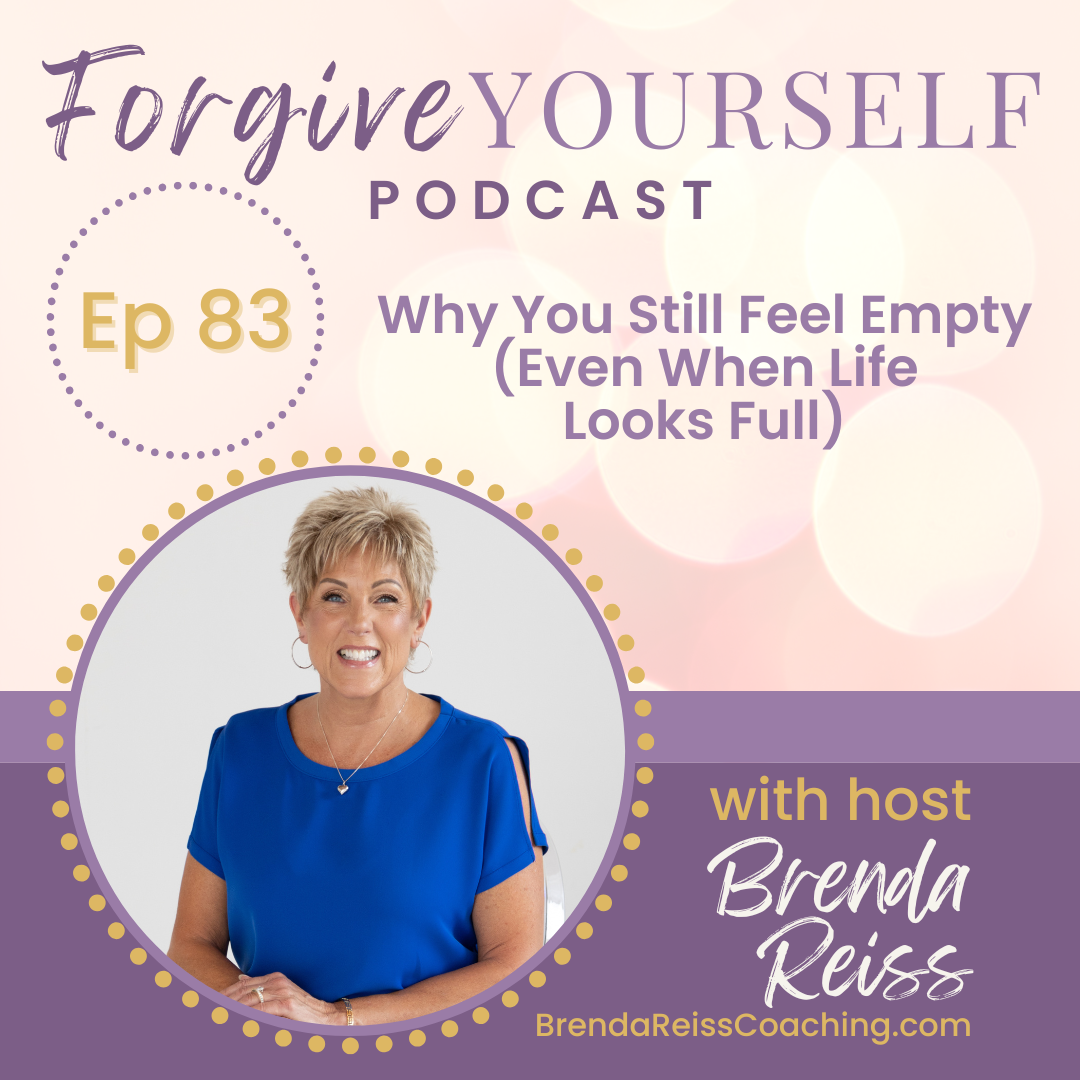Our deepest struggles often stem from needs that went unrecognized or unmet, quietly shaping our emotions, choices, and relationships in ways we don’t fully understand. This solo episode explores how unmet needs – basic human requirements that are emotional, physical, relational, or spiritual – continue to influence our adult lives and what we can do to heal these patterns with compassion.
The foundation of this work begins with understanding that needs aren’t selfish, wrong, or signs of weakness – they’re simply part of being human. However, many unmet needs trace back to childhood experiences where our authentic selves weren’t fully supported, protected, or seen. These early experiences create patterns that follow us into adulthood.
I illustrate how childhood experiences create lasting patterns: growing up with uncertain safety may create a deeper need for security in adulthood. Being praised only for achievements can create a hunger for recognition and validation. Being told that expressing needs was selfish can lead to struggles with autonomy or even basic self-care like resting without guilt.
The episode centers around Sarah’s story, a client who appeared successful with a thriving career and busy family life but came to me feeling exhausted and resentful. She was always taking care of everyone else while her own struggles went unnoticed. Through our work together, Sarah discovered that as a parentified child, she received recognition for helping others but not for expressing her own needs. She internalized the message that being loved required serving others first.
Sarah’s adult burnout reflected her unmet need for recognition and rest, driven by the old story: “If I want love, I have to take care of everyone else first.” Her healing journey began with naming her specific need – “I need recognition for who I am, not just what I do” – followed by small actions like asking for help and practicing self-validation.
The episode outlines five common unmet needs and practical responses for each:
Safety and Security: When unmet, this creates anxiety and unsettledness. Responses include creating grounding routines, learning boundaries, and bringing predictability through morning or evening routines.
Belonging and Connection: Unmet, this manifests as loneliness even in crowds. Responses involve reaching out to others, initiating connections, and naming feelings of loneliness without shame.
Recognition and Validation: When unmet, you feel overlooked or unheard. Responses include self-validation practices like journaling and directly asking for acknowledgment – which isn’t needy but confident and empowered.
Autonomy and Freedom: Unmet, this creates feelings of being trapped or powerless. Responses involve making small daily empowered choices and clearly communicating boundaries, which actually provide liberation.
Rest and Nourishment: When unmet, this leads to irritability and burnout. Responses include scheduling downtime (even five minutes), learning to say no without guilt, and listening to your body’s natural cycles.
I share a personal example about learning the importance of rest after brain tumor surgery, when I was advised to lie down for 5-20 minutes daily with no stimulation. This practice transformed my nervous system and outlook, teaching me how much energy basic functions require and the restorative power of intentional rest.
The healing process begins with naming unmet needs, because “what we name, we can nurture.” This involves identifying which need feels alive right now, exploring its origins through childhood messages, and choosing one small action to honor that need with compassion.
The episode emphasizes four key elements for addressing unmet needs: self-awareness to recognize and acknowledge needs, communication to honestly express needs to yourself and others, self-compassion to treat yourself with kindness during the change process, and seeking support from coaches, therapists, family, or trusted friends.
I challenge the belief that we must handle everything alone, reminding listeners that working together is how we’re meant to function and where we find fulfillment and validation. The episode concludes with the powerful reframe that unmet needs aren’t flaws but signposts pointing toward healing.
Throughout the conversation, I maintain that needs are inherently valid and meeting them with gentleness creates space for peace, clarity, and compassion. This work isn’t about perfection but about recognizing patterns with curiosity and responding with the same kindness you’d offer a beloved friend.




0 Comments